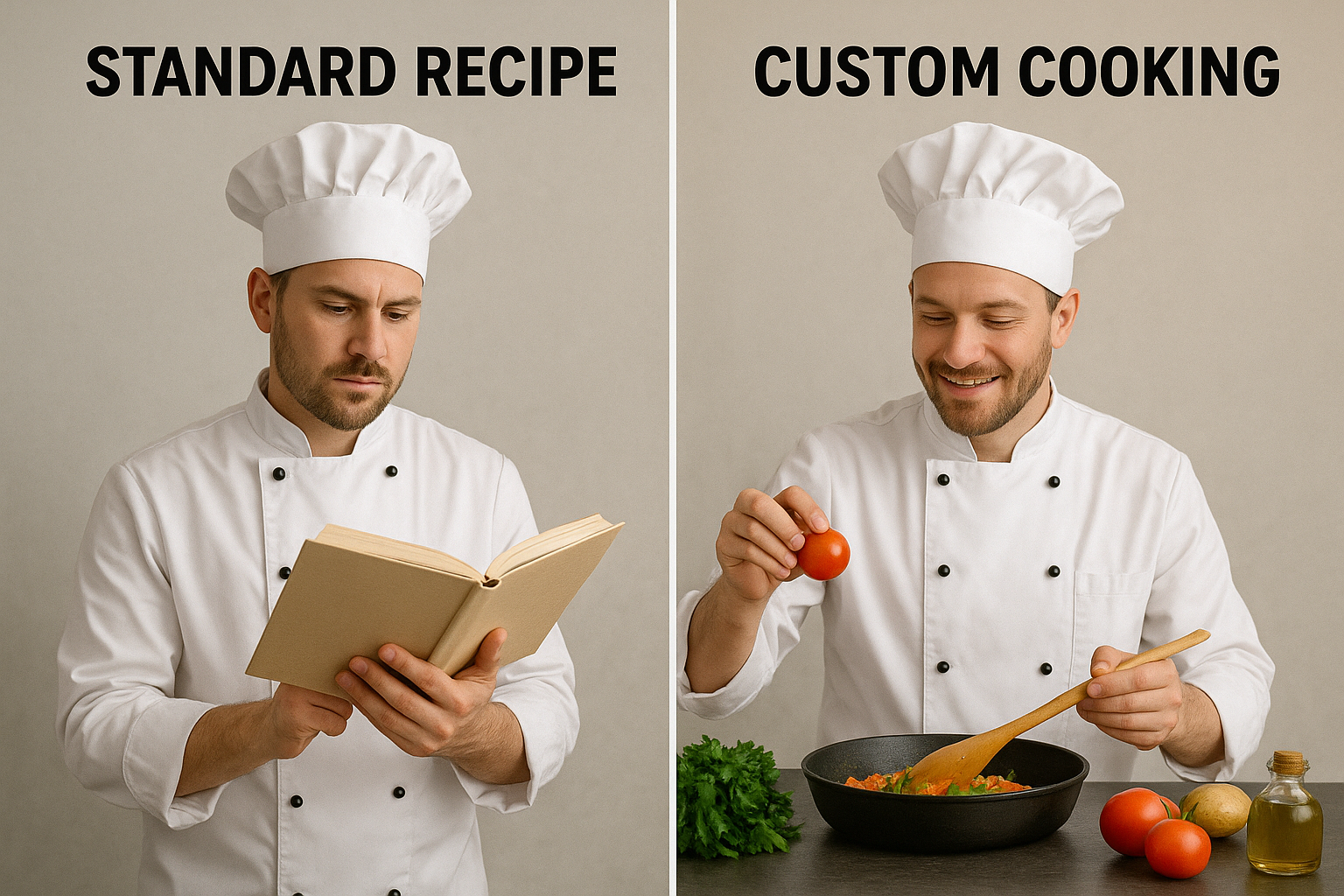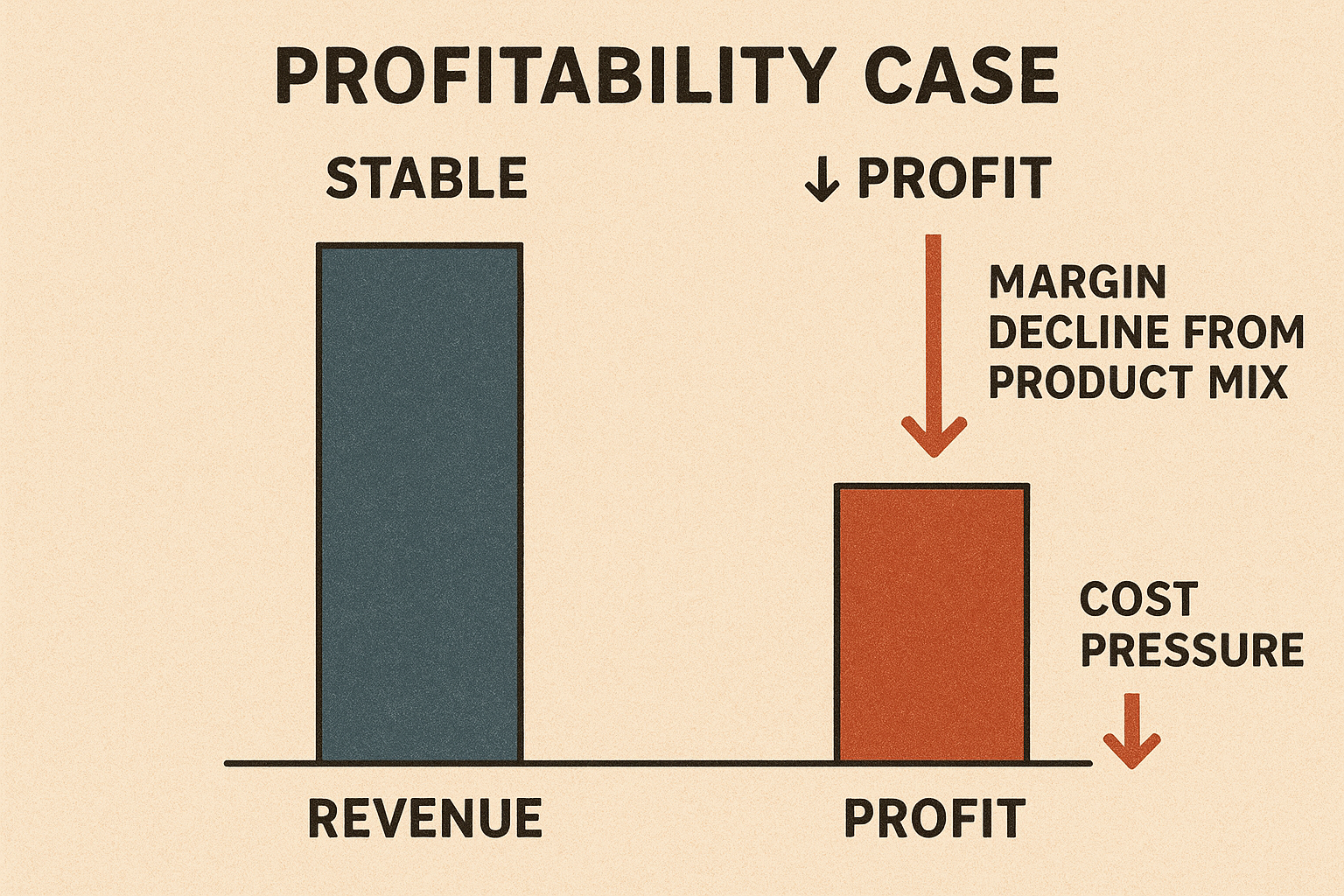Many candidates treat frameworks as the secret sauce for case interviews. But here’s the truth — interviewers don’t want a memorized recipe, they want to see if you can cook with what’s in the kitchen.

Think of a framework as a generic cookbook — it gives you the basics but not the context. Structuring, on the other hand, is like walking into a client’s kitchen, checking what ingredients are actually available, and crafting a meal that fits their needs. The logic is built fresh for every problem.
That’s why MBB interviewers listen for reasoning, not recall. A structured candidate pauses, clarifies the objective, and tailors their breakdown to the business context — instead of forcing a pre-learned framework. The best structures are always contextual, specific, and hypothesis-driven.
Let’s look at an example.
The case: A manufacturing client’s revenue has remained flat, but profits have declined by 15% over the past year. The average candidate jumps straight to the “Profit = Revenue – Cost” framework. They say, “Let’s look at revenues and costs separately.” It sounds fine — but it’s too surface-level.
A strong candidate starts differently: “If revenue is stable but profit is down, the likely driver lies in margin erosion. Let’s isolate whether the decline comes from price changes, product mix, or input cost increases.” They might further segment it into:
- Price impact — Are average prices dropping due to discounts or competition?
- Mix shift — Has volume grown in lower-margin SKUs?
- Cost pressure — Have raw material or logistics costs increased?

See the difference? Both frameworks begin with “Profit = Revenue – Cost.” But one stops there, while the other uses that as a starting point to adapt to the situation. The latter shows you understand business logic, not just formulas.
That’s what MBB interviewers reward — adaptability and depth. They know that real consultants never open a textbook during client work; they structure problems from scratch, shaped by context, data, and logic.
So next time you prep, stop memorizing frameworks. Instead, practice by asking: “What’s really driving this specific problem?” That mindset shift — from generic frameworks to adaptive structuring — is what separates analysts from consultants.
Want to practice adaptive structuring live? Try AI-led case interviews on MockInterview247 — your personal interviewer that challenges your reasoning, not your memory.
